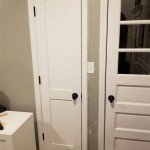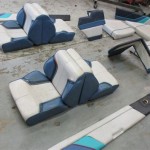How to Find an Interior Design Mentor
Entering the field of interior design can be a challenging yet rewarding endeavor. Aspiring designers often benefit significantly from the guidance and support of experienced professionals. A mentor can provide valuable insights, practical advice, and industry connections that accelerate career growth. Finding the right interior design mentor requires a strategic approach, proactive effort, and a clear understanding of individual goals and needs.
Mentorship, in the context of interior design, involves a relationship where an experienced professional shares their knowledge, skills, and expertise with someone who is less experienced and seeking guidance. This relationship goes beyond simply providing advice; it encompasses active listening, constructive feedback, and ongoing support. A good mentor can help navigate the complexities of the design industry, avoid common pitfalls, and cultivate the essential skills needed for success.
Successful mentorships are built on mutual respect, trust, and a shared commitment to professional development. The mentee must be willing to learn, be receptive to feedback, and actively participate in the mentoring process. Simultaneously, the mentor should possess the knowledge, experience, and communication skills necessary to effectively guide and support the mentee's growth.
Identifying Individual Needs and Goals
Before embarking on the search for a mentor, a clear understanding of individual needs and professional goals is crucial. This self-assessment serves as the foundation for identifying the type of mentor who can best support the desired trajectory. The process begins with a thorough reflection on strengths, weaknesses, and areas where improvement is sought.
Consider specific skills that need to be honed. This might include technical skills such as CAD software proficiency, space planning expertise, or knowledge of specific design styles. Alternatively, the focus may be on developing soft skills such as client communication, project management, or negotiation abilities. Identifying these skill gaps will help narrow the search for a mentor whose expertise aligns with specific needs.
Defining long-term career aspirations is equally important. Is the goal to work for a prestigious design firm, launch an independent practice, specialize in a particular niche, or pursue a career in design education? Clearly articulating these aspirations will shape the criteria for selecting a mentor whose experience and network can facilitate the achievement of these goals. For instance, someone aspiring to start their own firm may seek a mentor who has successfully built and managed their own interior design business.
Furthermore, it is beneficial to consider the desired qualities in a mentor. Does one value someone who provides direct and critical feedback, or someone who offers a more supportive and encouraging approach? Recognizing preferred learning styles and communication preferences will significantly contribute to establishing a productive and fulfilling mentoring relationship. It’s important to find a mentor whose style complements the mentee's needs and fosters a comfortable and effective learning environment.
Networking and Leveraging Industry Connections
The interior design industry thrives on networking and collaboration. Attending industry events, joining professional organizations, and actively engaging with online communities are effective strategies for connecting with experienced professionals who may be potential mentors. These platforms provide opportunities to build relationships, learn from others, and gain exposure to different perspectives within the field.
Industry events, such as design trade shows, conferences, and workshops, offer invaluable opportunities to meet and interact with established designers. Actively participating in these events, attending presentations, and engaging in conversations with attendees can lead to meaningful connections. Preparation is key; research speakers and attendees beforehand and have thoughtful questions ready to initiate conversations. Business cards are essential tools for exchanging contact information and following up after the event.
Professional organizations, such as the American Society of Interior Designers (ASID) and the International Interior Design Association (IIDA), provide a platform for networking, education, and professional development. These organizations often host networking events, workshops, and mentorship programs that connect aspiring designers with experienced professionals. Membership in these organizations demonstrates a commitment to the profession and provides access to a valuable network of potential mentors.
Online communities, such as LinkedIn groups and online forums dedicated to interior design, offer another avenue for connecting with potential mentors. Actively participating in these communities, asking questions, sharing insights, and engaging in discussions can help build relationships and establish credibility within the online design community. When contacting potential mentors online, it is important to personalize the message, clearly articulate reasons for seeking mentorship, and demonstrate genuine interest in their work and experience.
Leveraging existing connections is also a powerful strategy. Informing professors, former employers, and other contacts about the desire for a mentor can lead to valuable introductions. Personal referrals often carry more weight and increase the likelihood of establishing a successful mentoring relationship. Be prepared to clearly articulate the reasons for seeking mentorship and what is hoped to gain from the relationship when making these requests.
Initiating and Cultivating the Mentoring Relationship
Once potential mentors have been identified, it is crucial to approach them in a professional and respectful manner. A well-crafted introductory message is essential for making a positive first impression and conveying sincerity and purpose. This message should clearly articulate the reasons for seeking mentorship from that specific individual, highlighting their achievements and experience that resonate with the prospective mentee's goals.
When outlining the reasons for seeking mentorship, be specific about individual needs and aspirations. Instead of simply stating a desire for guidance, articulate specific areas where help is needed, such as developing a particular skill, navigating a specific challenge, or achieving a specific career goal. This demonstrates a clear understanding of personal needs and a proactive approach to professional development.
Proposing a structured mentoring arrangement can also increase the likelihood of a positive response. This might involve scheduling regular meetings, setting specific goals for each session, and agreeing on a communication method and frequency. A structured approach demonstrates a commitment to the mentoring relationship and ensures that both parties are aligned on expectations and objectives.
Once a mentoring relationship is established, it is crucial to cultivate it through active participation, open communication, and mutual respect. Come prepared to each meeting with questions, updates on progress, and a willingness to receive feedback. Actively listen to the mentor’s advice and insights, and demonstrate a willingness to implement their suggestions. Regular communication, even between scheduled meetings, helps maintain momentum and strengthens the bond between mentor and mentee.
Expressing gratitude for the mentor’s time and guidance is essential. A simple thank-you note or a thoughtful gesture of appreciation can go a long way in fostering a positive and mutually beneficial mentoring relationship. Recognizing the value of their guidance and expressing appreciation for their support reinforces the commitment to the relationship and encourages continued mentorship.
It is also important to be mindful of the mentor's time and schedule. Respect their boundaries and avoid making unreasonable demands. Flexibility and understanding are key to maintaining a healthy and productive mentoring relationship. Remember that the mentor is volunteering their time and expertise, and their availability may be limited.
Regularly assessing the effectiveness of the mentoring relationship is crucial. Are the goals being met? Is the communication effective? Are both parties benefiting from the relationship? Openly discussing these questions and making adjustments as needed will ensure that the mentoring relationship remains valuable and productive over time. If the relationship is not meeting the intended goals, it may be necessary to seek a different mentor who is a better fit for individual needs and aspirations.

How To Find An Interior Design Mentor Help You Grow Your Business Part 1

The 10 Best Interior Designers In Mentor Oh With Free Estimates

How To Find A Mentor Who S Right For You The Muse

Careers In Interior Design The Ultimate Guide Nyiad

How To Find A Mentor 19 Expert Tips On Make Mentorship Work For You Tatler Asia

How To Find A Mentor Career Coach Shares Expert Tips

Careers In Interior Design The Ultimate Guide Nyiad

Dear Cristin How Do You Find A Mentor By Downs

How To Find A Good Mentor Seema

How To Find A Mentor Career Coach Shares Expert Tips
Related Posts








